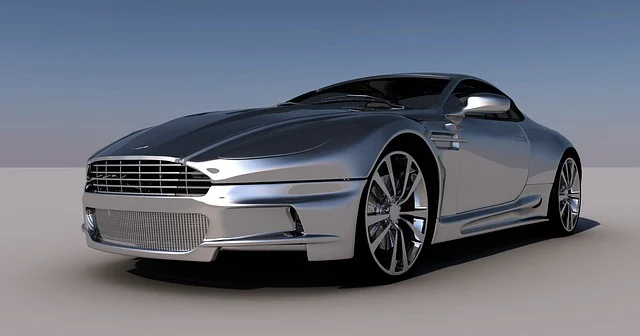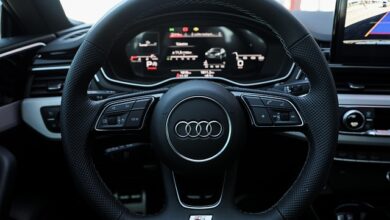Understanding No-Fault Insurance in Luxembourg

Luxembourg operates under a no-fault insurance system for automobile accidents, which simplifies the claims process and ensures that victims receive compensation quickly, regardless of who caused the accident. This system is designed to reduce legal disputes, lower administrative costs, and provide faster financial relief to those involved in traffic incidents.
If you’re a resident, expat, or frequent traveler in Luxembourg, understanding how no-fault insurance works is essential for navigating car accidents and ensuring compliance with local laws. In this guide, we’ll break down the key aspects of no-fault insurance in Luxembourg, including how it functions, its benefits, limitations, and what you need to know as a driver.
1. What Is No-Fault Insurance?
No-fault insurance is a system where each party involved in an accident files a claim with their own insurance provider, regardless of who was at fault. In Luxembourg, this applies specifically to third-party liability insurance (Responsabilité Civile Automobile, or RCA) , which is mandatory for all vehicles.
Under this system:
- Each driver’s insurance company compensates them for damages and injuries up to the limits of their policy.
- There’s no need to determine fault before processing claims, which speeds up the resolution process.
- Drivers are still required to report accidents to their insurers and, in some cases, to the police.
2. How Does No-Fault Insurance Work in Luxembourg?
In Luxembourg, the no-fault system primarily applies to personal injury claims resulting from car accidents. Here’s how it typically works:
a. Reporting the Accident
- After an accident, drivers must exchange information, including names, contact details, vehicle registration numbers, and insurance details.
- If there are injuries, significant damage, or disputes over fault, the incident must be reported to the police within 24 hours.
b. Filing a Claim
- Each driver contacts their own insurance provider to file a claim, even if they believe the other party was at fault.
- The insurer assesses the damages and processes the claim based on the policy terms.
c. Compensation for Injuries
- Personal injury claims are handled through the Fonds de Garantie Automobile (FGA) , a national fund that ensures compensation for victims of road accidents.
- Victims receive compensation for medical expenses, lost income, and other related costs without needing to prove fault.
d. Property Damage
- While personal injuries fall under the no-fault system, property damage (e.g., vehicle repairs) is not covered by no-fault insurance.
- For property damage, fault determination may still be necessary, and compensation depends on the at-fault driver’s liability insurance.
3. Benefits of the No-Fault System
The no-fault insurance system in Luxembourg offers several advantages:
a. Faster Claims Processing
Since fault doesn’t need to be determined for personal injury claims, victims receive compensation more quickly, often within days or weeks.
b. Reduced Legal Disputes
By eliminating the need to assign blame for personal injuries, the system minimizes lawsuits and legal battles between drivers.
c. Guaranteed Compensation
Even if the at-fault driver is uninsured or flees the scene, victims can still receive compensation through the FGA.
d. Simplified Procedures
Drivers deal directly with their own insurers, making the process straightforward and less stressful.
4. Limitations of No-Fault Insurance
While the no-fault system has many benefits, it also has some limitations:
a. Limited Coverage for Property Damage
No-fault insurance does not apply to vehicle repairs or other property damage. Fault determination is still required for these claims, which can complicate matters.
b. Caps on Compensation
Compensation for personal injuries is subject to limits set by law, which may not fully cover severe or long-term damages.
c. Higher Premiums
Because insurers pay out claims regardless of fault, premiums for third-party liability insurance may be higher than in fault-based systems.
d. Exclusions
Certain types of accidents, such as those involving uninsured or foreign drivers, may require additional steps to secure compensation.
5. Mandatory Insurance Requirements in Luxembourg
To drive legally in Luxembourg, you must have third-party liability insurance (RCA) . This coverage is the foundation of the no-fault system and includes:
- Personal Injury Liability: Covers injuries caused to others in an accident.
- Property Damage Liability: Covers damage to third-party property, though fault determination applies here.
Additionally, drivers can opt for supplemental coverage, such as:
- Collision Insurance: Covers repairs to your own vehicle.
- Comprehensive Insurance: Protects against non-collision-related incidents like theft, fire, or natural disasters.
- Legal Protection Insurance: Helps cover legal fees if disputes arise.
6. Steps to Take After an Accident in Luxembourg
If you’re involved in a car accident in Luxembourg, follow these steps to ensure proper handling under the no-fault system:
Step 1: Ensure Safety
- Move your vehicle out of traffic if possible.
- Check for injuries and call emergency services if needed.
Step 2: Exchange Information
- Collect details from the other driver(s), including names, contact information, vehicle registration numbers, and insurance provider.
Step 3: Report the Incident
- Notify your insurance company as soon as possible.
- File a police report if there are injuries, significant damage, or disputes over fault.
Step 4: File a Claim
- Submit a claim to your insurer for personal injuries or property damage.
- Provide any required documentation, such as photos, police reports, or medical records.
Step 5: Follow Up
- Stay in contact with your insurer to track the progress of your claim.
- If dissatisfied with the outcome, seek legal advice or escalate the issue through dispute resolution channels.
7. Frequently Asked Questions (FAQs)
Q: Do I need to prove fault for personal injury claims in Luxembourg?
A: No, personal injury claims are processed under the no-fault system, so fault determination is not required.
Q: What happens if the at-fault driver is uninsured?
A: The Fonds de Garantie Automobile (FGA) ensures compensation for victims, even if the at-fault driver is uninsured or unidentified.
Q: Does no-fault insurance cover my car repairs?
A: No, no-fault insurance only covers personal injuries. Property damage claims require fault determination.
Q: Can I sue the other driver for damages?
A: While the no-fault system discourages lawsuits for personal injuries, you may still pursue legal action for severe damages or property-related claims.



